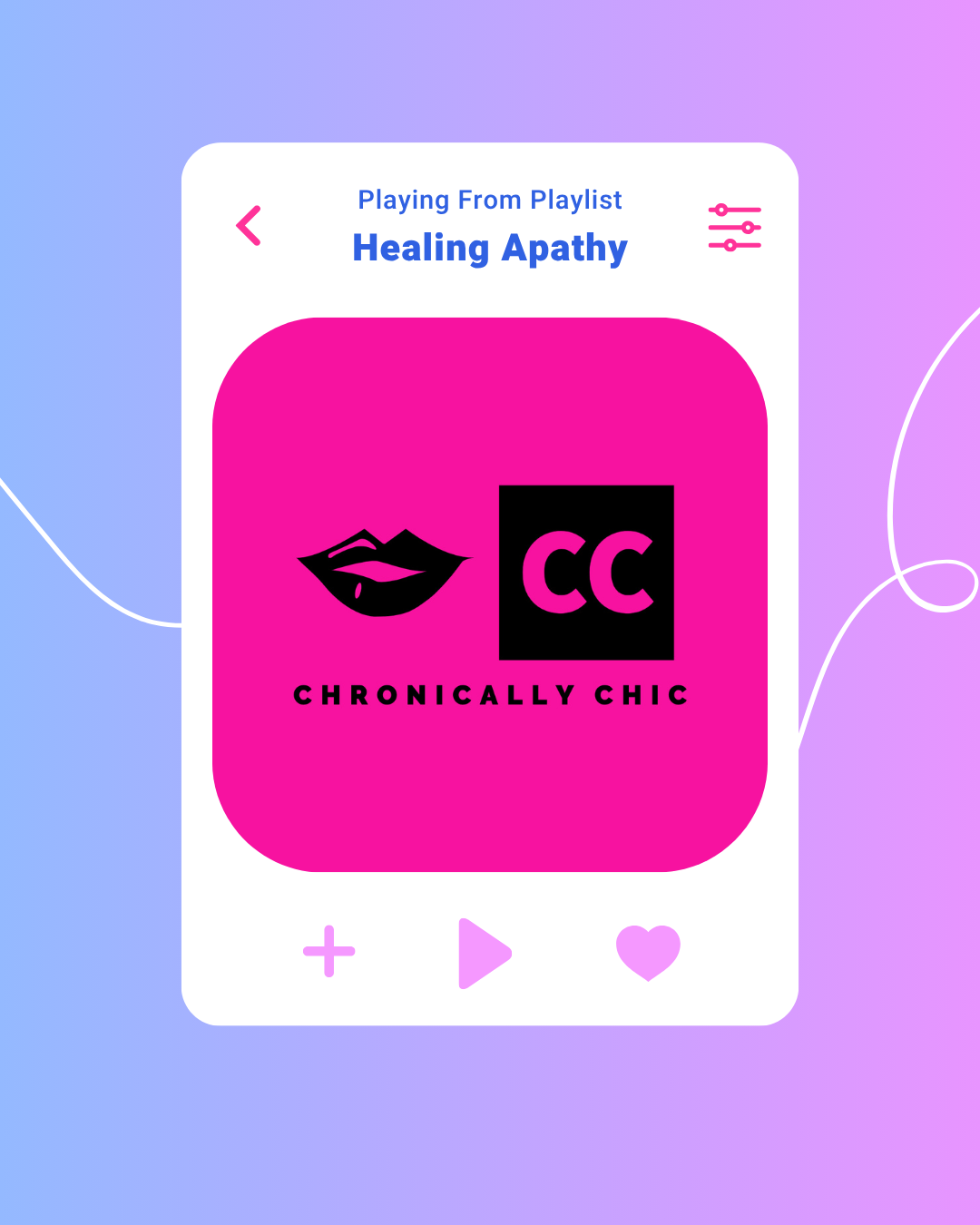Food & Feelings: How What You Eat Messes with Your Mood
Hi friends!
You don’t need to juice celery, soak chia seeds, or spend your entire paycheck at Erewhon to feel better. Seriously. Some of the most powerful, nourishing foods are already in your fridge or pantry, hiding behind that expired salad dressing. No complicated rules. No 30-day reset. Just real food that supports your body, and doesn’t taste like regret. I’m skipping the fads and diving straight into the simple staples that work. The stuff you’ll actually eat. Ready to clean up your meals without losing your mind (or money)? Good. Let’s talk about what deserves a spot on your plate.
Want to keep your mood on lockdown all month long? My newsletter spills all the secrets on real food, real feels, and zero fluff. Drop your email and join the gang.
The Role of Nutrition in Mental Health
You know, it’s not just an old saying that you are what you eat—there’s a lot of truth to it! What we put into our bodies affects our brain chemistry, and that, in turn, has a big impact on our mood. If your brain were like a car, it would need the right kind of fuel to run smoothly. If you skimp on nutrients, it’s like putting the wrong gas in your vehicle.
When our diet is lacking in essential vitamins and minerals, it can lead to feelings of irritability and fatigue and even worsen anxiety and depression. Trust me, I've been there! Specific nutrients, like vitamins B6 and B12, and minerals such as magnesium, play a key role in keeping our mood in check.
Key Nutrients That Support a Good Mood
1. B Vitamins: The Mood Regulators
You know, B vitamins are quite the superheroes when it comes to mood regulation. They’re essential for producing neurotransmitters—especially serotonin—which is key in keeping our mood balanced. When our B vitamin levels drop, it’s not uncommon to feel a bit fatigued, irritable, or just plain low. To keep your spirits soaring, try to incorporate whole grains like brown rice or sprouted bread into your meals, along with dairy, eggs, and lean meats. Not only will you help lift your mood, but you’ll also maintain your energy levels throughout the day!
2. Magnesium: Calm and Comfort
It shines when it comes to easing muscle tension and alleviating anxiety, making it easier to unwind after a long day. Plus, magnesium plays an important role in regulating neurotransmitters that influence our mood and sleep patterns. You can find this marvelous mineral in foods like brown rice, bananas, and—get this—dark chocolate! So, snack on bananas and chocolate while feeling your stress simply melt away. Sounds like a delicious way to destress, doesn’t it?
3. Vitamin D: Sunshine in a Bottle
Next up is vitamin D, a nutrient many of us seriously overlook—especially during those gloomy winter months! It’s vital for brain health and aids in mood regulation, with low levels being linked to depression. Make sure to include sources like fatty fish, egg yolks, and fortified milk in your meals. And if you're not into fish or if the sun is playing hide-and-seek, consider a high-quality vitamin D supplement to keep your spirits high! After all, who doesn’t need a little sunshine, even on the cloudiest of days?
4. Zinc: The Stress Fighter
This powerhouse nutrient deserves more attention than it usually gets. It helps regulate the production of serotonin and dopamine—our body’s own “feel-good” hormones. If we’re low in zinc, it can lead to heightened anxiety and depressive feelings. You can easily boost your zinc intake with delicious foods like red meat, poultry, broccoli, and carrots. So, whether you whip up a tasty salad or a hearty soup, know that you’re not just nourishing your body—you’re also nurturing your mental health!
5. Iron: Energy and Mood
Iron is essential for transporting oxygen in our blood, and a deficiency can leave us feeling sluggish and a little down. Find great sources of iron in beef, poultry, and leafy greens. To maximize your iron absorption, pair these foods with vitamin C-rich veggies like bell peppers or citrus fruits. Imagine a lovely stir-fry packed with chicken and vibrant bell peppers—not only is it delicious, but it’s also a fantastic mood-lifter in a bowl!
Feeling a little more hopeful? Good. If you want recipes, snack hacks, and no-BS advice to keep your vibe high, you know where to find me — right in your inbox. Sign up now!
The Impact of Blood Sugar on Mood
It’s not just about getting enough vitamins and minerals—how we manage our blood sugar throughout the day plays a crucial role in how we feel. Those blood sugar spikes and crashes can lead to irritability, fatigue, and even anxiety. Believe me, we’ve all faced those moments—think of that time you indulged in too much sugar and found yourself on an emotional rollercoaster.
To maintain a steady blood sugar level and keep our mood balanced, it’s important to focus on balanced meals. Aim to include protein, healthy fats, and complex carbohydrates in your diet. These elements work together to provide sustained energy without those drastic highs and lows. If you find yourself in need of a snack, I highly recommend something simple like peanut butter spread on a slice of hearty sourdough bread.
Foods to Avoid for Better Mood
I’m not saying we should completely banish everything deemed “bad” from our diets— that’s just not practical. Instead, it’s about being aware of how certain foods can affect our emotions when we indulge in them too much.
Take refined sugars, for example. They can feel like a quick fix for a bad day—you grab a sugary snack, get that short-lived high, and then, bam! You’re hit with a crash that leaves you feeling irritable and drained. It’s a slippery slope, and it can easily lead to a cycle of mood swings.
Then there are highly processed foods, like those tempting fast-food options and pre-packaged snacks. You know, the ones loaded with unhealthy fats and preservatives? These not only impact our physical well-being but can also wreak havoc on our gut health.
Let’s also talk about caffeine, which I know many of us love—myself included- especially when it comes to those delicious (but overpriced) lattes. While a cup of coffee can provide that much-needed boost, too much of it can lead to jitters, irritability, and even disrupted sleep. And trust me, we all know how a lack of sleep can negatively impact our mood and overall outlook on life.
So, it’s all about balance. Being mindful of what we consume and how it makes us feel can make a world of difference in maintaining a more positive state of mind!
Gut Health and Mood
Did you know that your gut is often referred to as your “second brain”? It might sound surprising, but there's some fascinating science behind it! Our gut is home to over 100 million nerve cells that communicate directly with our brain. This link means that if our gut health gets disrupted, it can throw our mood off balance, leading to issues like anxiety, mood swings, and even depression. Crazy, right?
So, if you want to keep both your gut and your mind in top shape, it's key to focus on eating foods that foster good gut bacteria. Incorporating probiotics into your diet—think delicious yogurt, tangy kefir, or even fermented foods like sauerkraut—can be a game changer. And don’t forget about prebiotics! These are found in various fruits, veggies, and whole grains, and they help feed the beneficial bacteria in your gut.
My Relationship with Food and Mood
I used to just grab whatever I liked without even thinking twice, often struggling to work through lunch, and by the time dinner rolled around, I was starving and cranky. It’s no surprise that I often felt moody or downright exhausted. But once I decided to dig a little deeper and pay attention to what I was putting into my body, everything changed.
I started focusing on nutrient-dense foods, like colorful veggies, whole grains, and healthy fats, rather than relying on those quick fixes that left me feeling empty afterward. It didn’t happen overnight, but gradually, I began to notice a significant shift in my mood. I felt more stable and energized, and I could think more clearly! DUH!
TLDR: Nutrition and Mood
Nutrients like B vitamins, magnesium, zinc, and iron are super important for mental health. Keeping your blood sugar stable and your gut happy also plays a big role in how you feel. Focus on nutrient-packed foods, think lean meats, eggs, dairy, and whole grains to give your body and mind a boost. And while it's all about balance, try to steer clear of refined sugars and processed snacks that can lead to energy crashes. Small changes can make a huge difference in helping you stay centered and energized!
1. What foods make anxiety worse without me realizing it?
Foods that seem harmless, like sugary coffee drinks, white bread, soda, and even flavored yogurts, can secretly make anxiety way worse. They spike your blood sugar, then crash it, leaving your nervous system flailing. If you feel edgy or panicky after eating, your snack might be the problem, not your personality.
2. Can eating sugar cause mood swings or emotional crashes?
Short answer? Yup. Sugar gives you that “I’m-on-top-of-the-world” moment, then tosses you into a pit of sadness 30 minutes later. This emotional whiplash happens when your blood sugar spikes fast and drops hard. That cupcake might be cute, but your mood after? Not so much.
3. Why do I feel depressed after eating fast food?
Fast food is loaded with unhealthy fats, low-quality meat, additives, and almost zero nutrients. It can inflame your gut, mess with your serotonin levels, and leave you feeling foggy, tired, and emotionally flatlined. Your McMood is not imaginary, it’s biochemical.
4. Which vitamins help with mood and anxiety?
The real MVPs are B6, B12, magnesium, zinc, vitamin D, and iron. These nutrients work behind the scenes to keep your brain balanced, your stress hormones in check, and your mood more even. If you’re low on any of these, you might feel like a walking PMS episode, even if it’s not that time of the month.
5. What are some mood-boosting snacks I can eat every day?
Try banana slices with peanut butter or sourdough toast with real butter. These give you protein, healthy fats, and minerals that actually calm your nervous system. No fancy health food store required.
6. Can what I eat affect my hormones and make me moody?
A hundred percent yes. When your diet’s missing key nutrients or overloaded with refined carbs and processed junk, it can throw off your estrogen, cortisol, and serotonin levels. That’s the hormonal chaos trifecta right there. What you eat doesn’t just hit your hips, it hits your hormones.
7. Does eating at regular times help with mood stability?
Absolutely. Skipping meals or waiting too long to eat can tank your blood sugar, leaving you cranky, anxious, or weirdly emotional. Think of food like emotional maintenance. Eating every 3-4 hours with protein, fat, and carbs helps keep your vibes steady.
8. Why do I feel tired and sad after I eat certain foods?
It could be blood sugar crashing, poor digestion, or food sensitivities (even ones you haven’t officially “diagnosed”). High-nickel, high-histamine, or inflammatory foods can make you feel emotionally and physically wiped out. Start noting how you feel after meals, your plate might be the problem.
9. How does magnesium help with mood and sleep?
Magnesium is your nervous system’s chill pill. It helps regulate GABA (a calming neurotransmitter), supports deep sleep, eases muscle tension, and even helps quiet intrusive thoughts. If you’re tossing, turning, and overthinking everything, magnesium-rich foods like bananas, dairy, and dark chocolate might help.
10. What foods are best to eat before my period to avoid PMS mood swings?
Load up on foods rich in B vitamins, magnesium, and iron, like eggs, grass-fed beef, dairy, bananas, and white rice. Skip the salty chips and sugar bombs if you don’t want to feel like crying over a missing sock. Balanced meals = balanced moods, especially during hormone chaos week.
Final Thoughts
While it might not be a magic solution that changes everything overnight, just think about how much power we hold simply by choosing the right foods! Incorporating more whole, nutrient-rich options into our meals can lead to some pretty amazing changes in our emotional well-being, like feeling a natural boost in our mood and a decrease in anxiety.
Okay, spill it, what’s your go-to mood food? Hit the comments and let’s chat. And don’t be stingy, share this post with your friends who could use a little mood magic. Plus, if you haven’t already, sign up for the newsletter to never miss out on my top food & wellness tips. We’re all in this mood-boosting club together.
















